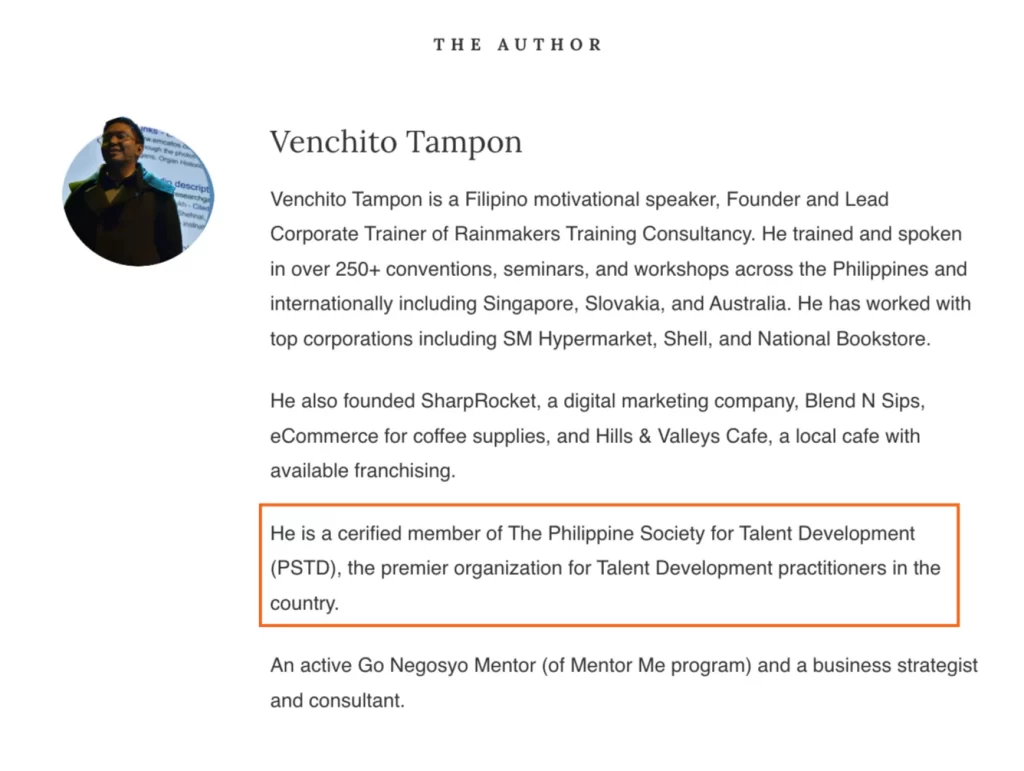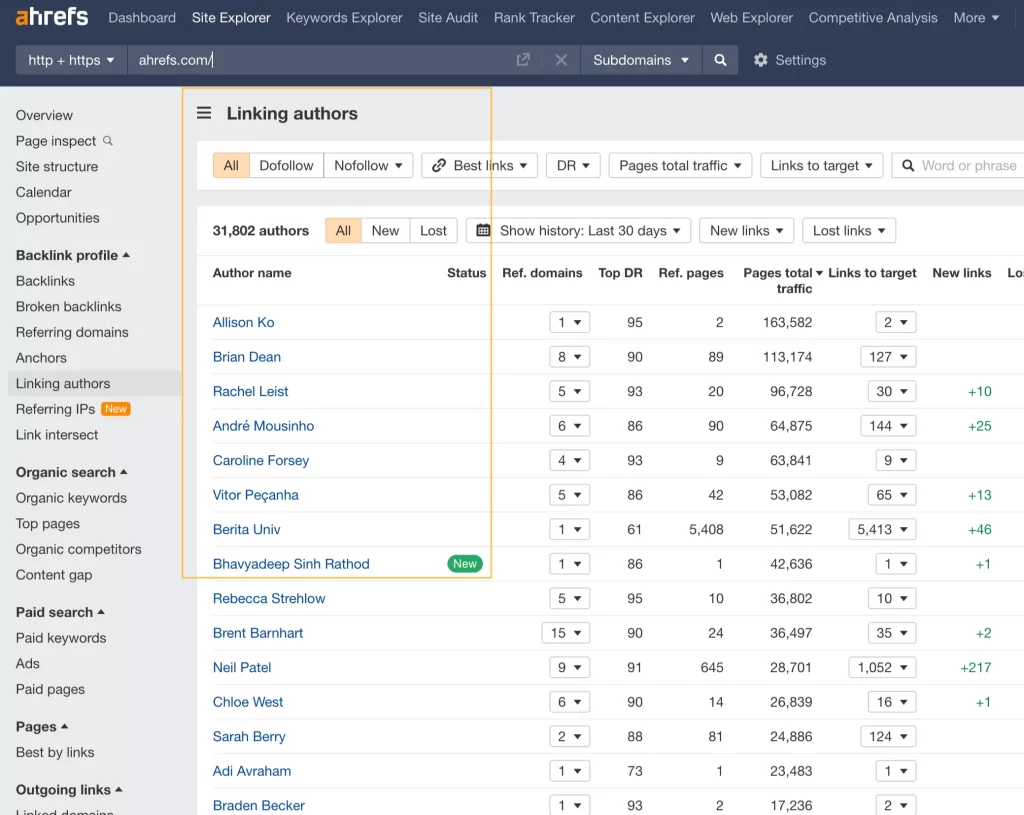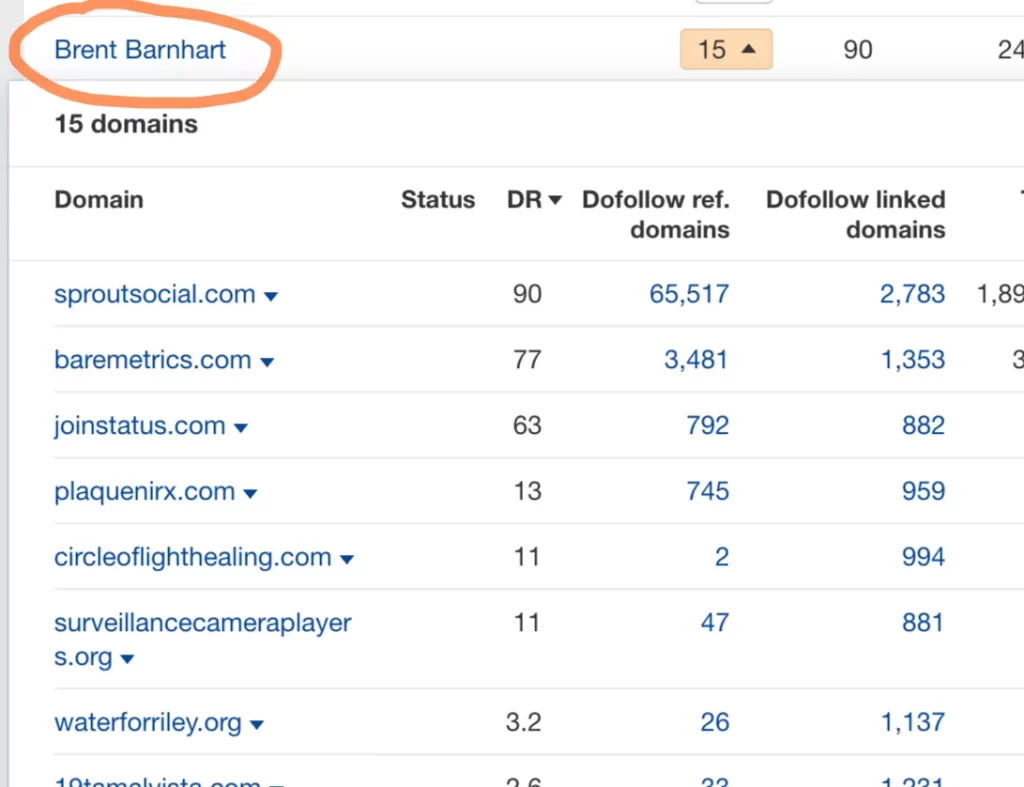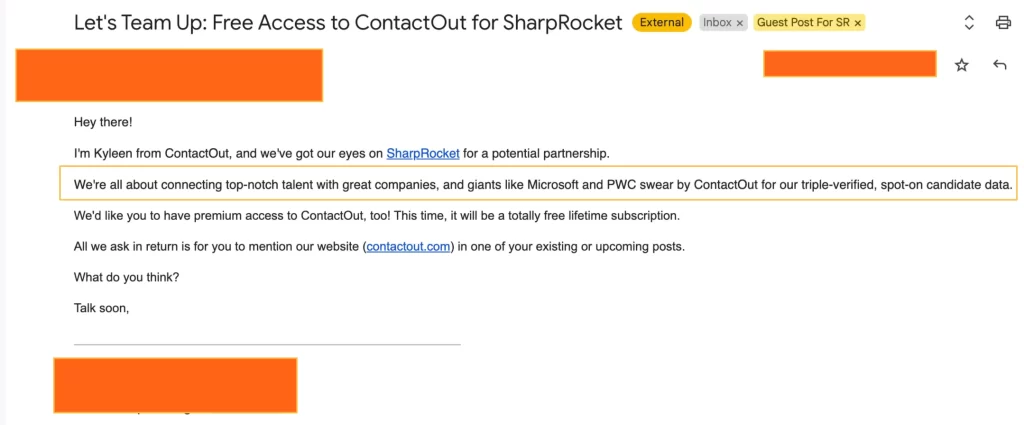The concept of authorship has long been regarded as a crucial ranking signal within Google’s algorithms, a fact dramatically underscored by the May 2024 Google leak. It emphasizes that an author’s byline can establish the credibility and trustworthiness of content, making it deserving of search engine rankings.
With this, authorship profoundly impacts many facets of SEO, including link building.
Credible authors, backed by decades of experience, expertise, and a proven track record in their industry, are perceived to be valuable contributors to helpful content. This helpful content created by these legitimate authors draws other content publishers looking for additional references for their work, resulting in natural backlinks.
Strengthening authorship profiles certainly helps establish authority and build trust for audiences likely to provide relevant links to other websites.
In today’s post, let’s explore some tips for leveraging authorship profiles to earn and acquire backlinks for your site, elevating your site’s SEO to the next level.
1. Solidify Brand Equity with Authorships
In the past, many SEOs utilized outreach personas when pitching to relevant publications in hopes of distributing their third-party content (“guest posts”).
Different email accounts created for different outreach angles seem to be working fine until it turns out that many publishers were pissed (and totally ignored) these emails as submitted content pieces include mediocre author bios with over-optimized exact match anchors.
Leveraging authorship for outreach is more advantageous in penetrating popular industry publications with strict editorials. The value proposition of the outreach isn’t solely based on the content but on the author entity’s expertise and their following (audiences).
Given the helpfulness of their content, which contains real-life experiences and commentaries, they attract blogs and publications to accommodate those content assets.
A-list publishers even incentivize these industry thought leaders for their content, given the quality of work and potential readers they’ll likely absorb once these authors promote their content pieces on social media and to their networks.
Create and solidify author profiles. Add relevant achievements, educational background, and professional experience to establish trust and authority with your audience.
Mention affiliations with professional organizations. For instance, I include in my corporate training bio that I am part of the Philippine Society for Talent Development, a local organization for learning development practitioners.

When pitching to publishers, it is better to use corporate accounts to increase response and conversion (link placement) rates, given that the initial trust can be built just by seeing your profile name and designation.
2. Differentiate Content Using New Angles and Perspectives
With hundreds of email pitches publishers receive weekly, getting noticed and standing a chance for content distribution is becoming more challenging. The same subject has been brought up many times (some are cliches in the industry) and won’t bother any big publishers to publish on their blogs.
One way to differentiate your content is to develop new angles and perspectives on ideas that have yet to be published by other content creators. Mostly, these unique linkable ideas won’t come simply from someone without experience with the subject matter. This is where authorship comes in.
Credible authors and thought leaders would have an edge in providing unique thoughts on subject matters to broaden and deepen the discourse.
You can hire or get thought leaders within or outside your organization. Ask or interview them for unique thoughts on the matter, and use them as ideas for pitching publishers for content distribution.
3. Be The First in Localized Publishing
While we can assume that most topics in every vertical have been addressed, new subjects still need to be written about as every discourse grows in additional information.
You can find missing content gaps in your industry that you can fill by thinking from a local perspective. For instance, if you try to write about local SEO for lawyers, it would be different as you would cite other examples when you write about local SEO for dentists.
The same approach also applies when contextualizing topics based on your native language.
There were a few topics when I started publishing guides focused on talent development and corporate training at Rainmakers. Much has been shared covered on local business topics, but not particulars on corporate training. So, there is a great opportunity to be the first (and probably the best) publisher in the local corporate training scene.
Being the first to publish topics in the local context could impact your link building campaign. You will naturally earn local links from publishers looking for additional references.
Since few content creators expound on tightly local niche topics, you’ll have the edge over competitors in getting natural links from researchers and journalists.
4. Create a Roster of Thought Leaders to Be Your Authors
Optimizing authorship is also about gaining visibility in other places outside your website. This means you get to be mentioned on other notable sites where your expertise and experience as an author can be amplified.
You can incentivize authors in your industry through business collaborations and content partnerships. This approach is similar to hiring and engaging writers but focuses on getting high-level industry experts who can craft comprehensive content on topics you’d like your brand to be known for.
Use Ahrefs’ author feature to find credible authors in your industry.

Start by looking at existing links of prominent publications through the “Linking Authors” feature and see which have contributed much to other blogs.

Do a Google search for their names to validate other publications they’ve contributed to.
Reach out to them, offer partnerships (or incentivize with offers), and let them write articles on your blog. You can hire them within a specific timeframe to be your regular contributors to build brand credibility based on their authorship.
It’ll be more effective to ask these authors to amplify their contributed content on your blog by sharing it on their own networks and social media profiles.
By leveraging key personalities and authors in your industry, you expand the reach of your brand to new audiences.
5. Republish Evergreen Posts in Different Languages
Another strategy to get links using authorship is allowing your content to be translated into different languages. This can help you reach international audiences your brand isn’t primarily targeting.
If you have credible authors, you can offer content partnerships to publications in your space and see if they’ll be interested in republishing your content in different languages.
When necessary, link to the original source of the content (your site) with the rel=”canonical” tag.
If your site currently speaks to non-English audiences, you can seek legitimate authors who want to republish their content on your blog in your native language under their authorship.
Start by searching for evergreen posts they’ve written on their site. Finding evergreen content is important, so you’ll expect it to provide value to your audience for a long time without requiring frequent updates now and then.
Translating content is a solid proposition for every author and content publisher who wants to tap the expertise of others—especially the ones with a global presence but who don’t primarily speak the language of their audience.
6. Penetrate A-list Publishers/Associations’ Blogs
It is not enough to create an author byline with available credentials. If you can invest in strengthening authorship by contributing to publications that other bloggers or content creators don’t easily penetrate, you’ll have a bigger advantage over your competitors in increasing brand awareness.
Some associations and entities have their online publications, which usually feature thought leaders in the industry who have contributed significantly to society through their works, charities, and knowledge sharing.
If you are a member of any association and organization in your industry, take advantage of their brand authority by contributing content pieces along with your author byline.
Mentions from this type of entity build the credibility of author names, as Google recognizes associations of certain words and phrases with specific nouns or names (entity association).
In short, if your author names are frequently mentioned in publications and associations for topics and expertise you’d like to be known for, it will also positively impact the branding and rankings of your site (hosting the principal authorship).
7. Outreach to Authors for Product Mentions
If you’re doing product-led link building, finding authors with established audiences is a great way to acquire new customers for your offers.
Asking them to endorse your products naturally helps increase trust in your brand and solidifies the proposition of your offer (much like trusting personalities and celebrities when they endorse products to us). It also helps you tap other audiences different from your usual readers with your content publishing.
Recently, we’ve been getting emails from SaaS marketing tools that are very enticing because they offer premium lifetime accounts.

If you are doing this outreach angle, offer something irresistible to credible authors. Otherwise, it won’t be convincing (or worth their time) to include your product in their existing content.
One way to increase response rates is to showcase social proof of your products by sharing your client roster (portfolio) and how your product helped them achieve their results after they used it.
A slight addition to your outreach like this gives you an advantage over other outreach accounts that are focused too much on just giving away free accounts.
8. Invest in Co-authorship
Collaborate with other industry experts by co-authoring articles, research papers, data-driven content, or other content formats.
This is a scalable strategy to strengthen further authorship on both parties (the one reaching for co-authorship and the author being contacted). As a result, both of you will benefit from mentions and natural backlinks from authoritative sources.
It is also helpful in reaching out to higher-level publications, as content written, validated, and even reviewed by multiple (two or more authors) is much more enticing for editors than content written by a single contributor.
During the co-authorship stage, you can also start building up someone in your organization (a newcomer in the writing stage but with enough expertise to build their personal brand). As they provide solutions through their content, they’ll also have opportunities to represent your brand in a bigger scale.
Get Natural Links and Mentions Through Authorship
Your link building campaign becomes more effective when it relies on credible authors and their expertise. This ensures your site gets natural links and mentions through helpful content.
The Author
Venchito Tampon
Venchito Tampon is a Filipino Motivational Speaker, Corporate Trainer, and a Leadership Speaker in the Philippines. He is the CEO and Co-Founder of SharpRocket, a link building agency. With a decade of experience, Venchito has a proven track record of leading hundreds of successful SEO (link builidng) campaigns across competitive industries like finance, B2B, legal, and SaaS. His expert advice as a link building expert has been featured in renowned publications such as Semrush, Ahrefs, Huffington Post and Forbes. He is also an international SEO spoken and has delivered talks in SEO Zraz, Asia Pacific Affiliate Summit in Singapore, and Search Marketing Summit in Sydney, Australia. Check out his other businesses, Hills & Valleys Cafe, Blend N Sips and Saas Pursuit.
How our LINK BUILDING AGENCY in UK builds 250 links/mo consistently using Predictable Link Building Methodology™…
- Using a SIMPLE and PROVEN system
- Using a SCALABLE strategy
- No private blog networks
- No creepy outreach emails

